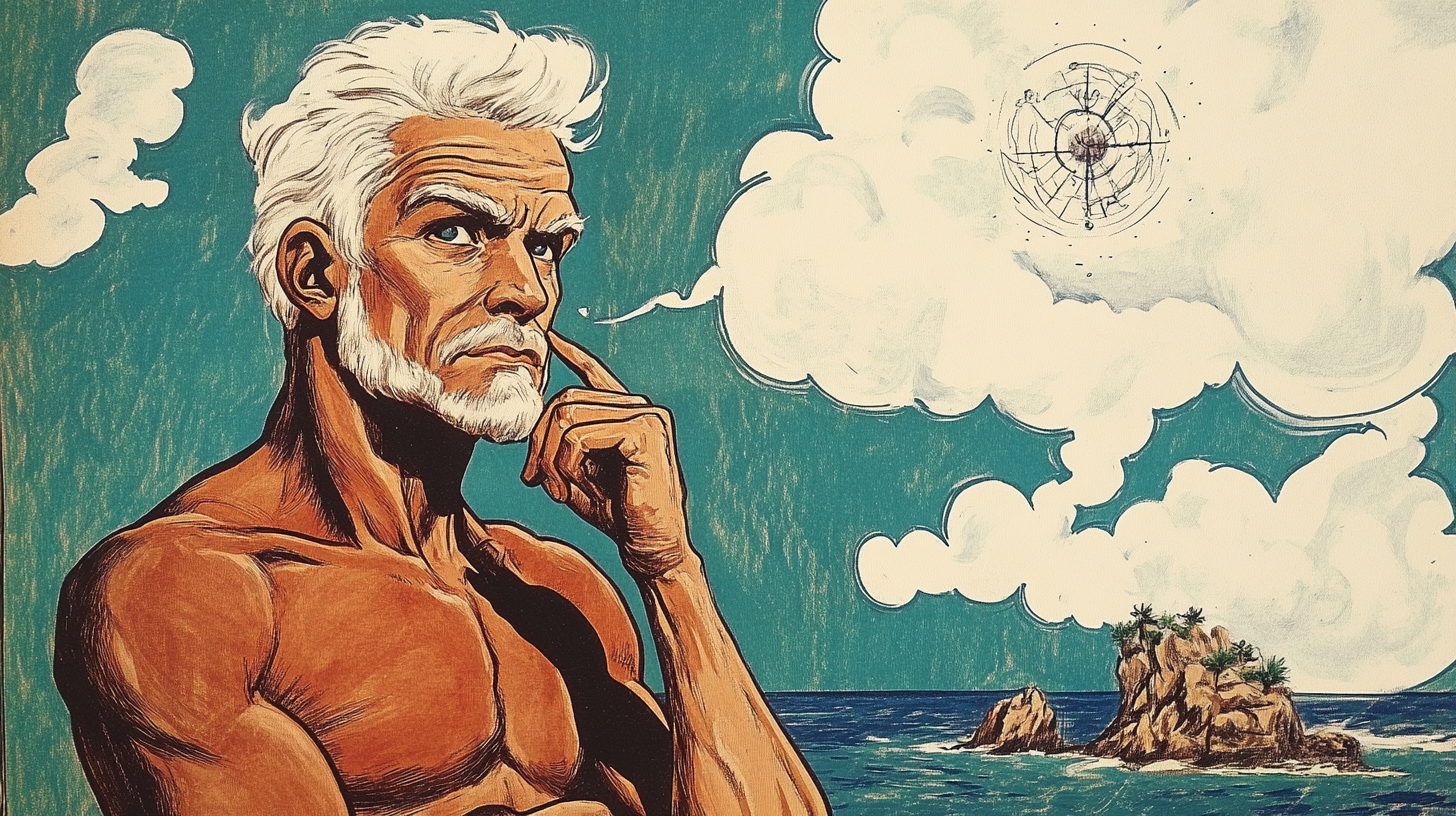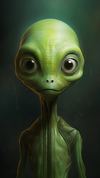"Odd John" Explores the Burden of Higher Intelligence
A reflective review of Olaf Stapledon's "Odd John," exploring its philosophical depth, narrative style, and lasting influence on science fiction's portrayal of the post-human and intellectual isolation.

In the history of science fiction, certain novels stand apart—not for their plots or characters, but for the sheer force of the ideas they unleash. Olaf Stapledon's "Odd John," published in 1935, belongs firmly in that category. It is not a space opera or a technothriller. It does not rely on adventure or spectacle. Instead, it offers a sober, penetrating meditation on the future of man, and the possibility that mankind may not be the summit of evolution after all.
Stapledon was not a novelist in the conventional sense. With a background in philosophy and psychology, he approached fiction as a means to explore the shape of things to come. His work belongs to a small but significant tradition of speculative literature that blends scientific curiosity with metaphysical inquiry. In "Odd John," he imagines the emergence of a new type of being—intellectually superior, emotionally remote, and ethically detached from ordinary human concerns.
The novel follows the life of John Wainwright, a child whose extraordinary gifts quickly set him apart from the rest of humanity. The story is told by a sympathetic narrator who records John's development with the care of a biographer and the caution of someone who knows he's witnessing something unprecedented.
At its core, "Odd John" operates as a thought experiment, projecting what might happen if evolution were to take a sudden leap forward. It asks questions that science fiction still grapples with today—about genius, isolation, morality, and the limits of human understanding. The book does not comfort. It provokes. And in doing so, it earns its place among the classics of the genre.
Themes of Evolution and Alienation
In "Odd John," Olaf Stapledon envisions not the enhancement of man but his obsolescence. John Wainwright, born with a mind no one fully understands, represents a leap across a biological gap. He does not evolve from humanity. He emerges beyond it. This idea, quietly radical, shapes the novel's premise. John is homo superior, a species apart, defined not only by intelligence but by a wholly foreign mode of thought.
His insights are immediate. His judgments are unclouded by convention. He studies mankind as a zoologist studies another species—curious, detached, and occasionally sympathetic. But he never pretends to belong. Stapledon builds this divide gradually through a series of cool observations. John does not rebel. He outgrows. His decisions are guided by logic inaccessible to others, and his sense of morality is self-authored.
The result is not pride but distance. John's superiority is innate. He does not seek dominance. He seeks understanding and, more urgently, kinship. Yet in that search lies the tragedy. His difference isolates him. Without peers, the brightest mind of his generation becomes its most solitary figure. His emotional life, stripped of sentimentality, is not empty but stark. Stapledon never romanticizes this isolation. Instead, he asks whether brilliance, taken to its limit, can coexist with belonging.
"Odd John" is not a celebration of genius. It is a study of divergence and its cost. If man is no longer the measure, what follows must live by other rules. John's story becomes both visionary and unsettling in that new arithmetic.

Style and Structure
"Odd John" is presented not as a traditional novel but as a chronicle—a pseudo-biography composed by a human acquaintance who follows John Wainwright from his earliest days through the arc of his unusual development. This narrative frame gives the book a restrained, documentary feel. The narrator is not a participant in John's world but a witness to it. He offers observations, records conversations, and admits his own limitations in understanding the events he describes.
The tone is clinical at times, even dispassionate. There is little dramatization. Stapledon chooses instead to convey his ideas through summaries, analyses, and reported dialogue. This method keeps the prose cool, even when the content grows strange or unsettling. Readers looking for tension or character-driven drama will find neither. The emotional pulse of the book is quiet, buried beneath layers of intellectual reporting.
This detached voice recalls the early works of H.G. Wells. Like "The Time Machine" or "The Island of Dr. Moreau," Stapledon's narrative keeps the extraordinary at arm's length. The marvels and horrors unfold not with awe but with academic interest. The narrator of "Odd John" plays a role much like Wells's unnamed time traveler—an interpreter for the reader, grounded in familiar human sensibilities.
That distance is deliberate. It reinforces the central theme of separation. The more John grows beyond human comprehension, the more the narrative tone recedes. The narrator becomes increasingly peripheral, his presence reminding the reader that the story belongs to a world that is no longer his own.
Stapledon's structural choice serves his philosophical agenda. By refusing to sentimentalize, he underscores the gulf between the old and the new. "Odd John" is not merely about an evolved mind. It is a book that forces the reader to see with one and feel the cold clarity that comes with it.
Legacy and Influence
"Odd John" occupies a pivotal place in the development of modern science fiction. Its ideas seeded a host of later narratives, particularly those centered on the gifted outsider and the challenge of post-human identity. While Stapledon's name may not resonate with casual readers today, his influence runs deep. The novel's depiction of a superior being, isolated by intelligence and driven by a vision that ordinary humans cannot grasp, echoes across the genre like a quiet, persistent signal.
The most immediate legacy of the book is its archetype—the evolutionary misfit who walks among men but does not belong to them. This figure appears again in Theodore Sturgeon's "More Than Human," Arthur C. Clarke's "Childhood's End," and even in Stan Lee and Jack Kirby's X-Men, who grapple with alienation, power, and the moral limits of superiority. In each case, we see characters who bear John's burden. Intellect without acceptance. Advancement without harmony.
Stapledon's novel also anticipates themes that would trouble the 20th century in earnest. Eugenics, the ethics of progress, and the role of genius in a democratic society all haunt the margins of "Odd John." Though the book never moralizes, it does raise uncomfortable questions. If evolution selects a new kind of mind, what becomes of the rest of us? Can a civilization endure when its best minds reject its foundations?
The novel's foresight is striking. Written before the rise of post-war existentialism, the horrors of genetic theory gone awry, and the full flowering of speculative science fiction, "Odd John" touched nerves that science and society would press for decades to come. It did not offer comfort. It offered a warning—measured, reasoned, and difficult to dismiss.
Stapledon's legacy is not built on style or sentiment. It is built on vision. And that vision, once glimpsed, is not easily forgotten.
The Cost of Greatness
"Odd John" is not a book for every reader. Its strength lies in its willingness to follow an idea to its furthest implications, no matter how uncomfortable the result may be. Stapledon writes with intellectual rigor, not emotional warmth. His characters, especially John, are often more conceptual than human. The pacing is steady, even slow. Yet none of these qualities are flaws in the traditional sense. They are the deliberate marks of a writer who has chosen philosophy over plot and speculation over sentiment.
For readers drawn to science fiction as a vehicle for deep thought, "Odd John" is essential. It challenges assumptions about human nature, progress, and morality. It presents evolution not as triumph but as transition, and leaves the reader to decide whether that transition is one to be welcomed or feared.
In a genre often filled with noise and novelty, Stapledon's deliberate clarity endures. He does not ask us to admire his protagonist. He asks us to understand what such a being would mean for the rest of us. That question still matters.
"Odd John" remains a necessary work because it dares to contemplate the true cost of greatness. It reminds us that intelligence alone cannot make us whole. And it leaves us wondering whether the next step in human evolution might carry us somewhere we no longer recognize as home.

